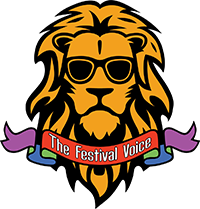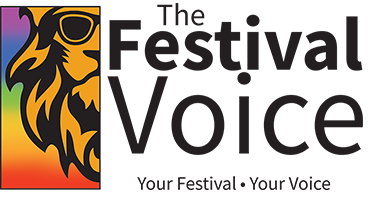TFV’s Series on Racial Injustice: Jordana
Trigger warning: This thread may include instances where people are treated unjustly with acts of racism, hate crimes, and homophobia. This thread highlights racial relations throughout the rave scene.
The Festival Voice knows these past couple of months have been tumultuous. While they have been challenging, ultimately, many people have done the right thing and have treated others with dignity. So many people took part in protests to fight back against police brutality and the treatment of people of color. In specific, this is in regard to the treatment of black people. We want to celebrate the diversity in the EDM community.
Diversity is crucial for humans to grow and learn from one another. There is so much we can learn from people of different ethnic groups or cultures. The Festival Voice values diversity. Our goal with this thread is to highlight ravers in the scene who are people of color or identify as LGBTQ+. Each post will highlight a different person. Not everyone has experienced racial injustice in the rave scene, but many people have. These posts are to highlight both the positives of the community as well as the negatives.
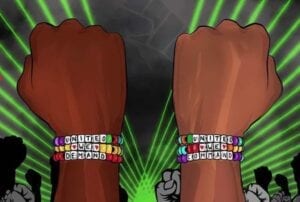
To start with, we interviewed Jordana. Jordana has dealt with both racism and sexism in the EDM community. Here’s her story.
Tell us a little about yourself. Who are you?
I’m Jordana, my full name is Jordana LeSesne formerly known as 1.8.7 which was the name i used from 1992-1998 as one of the first US Drum & Bass producers and DJs. Additionally, following a move to London in 2001, I produced and DJed and produced UK Garage/2-Step under the name Lady J in London on Flex 106.3 while also having a residency at Trinity, a UKG and Drum & Bass night at the Chunnel Club.
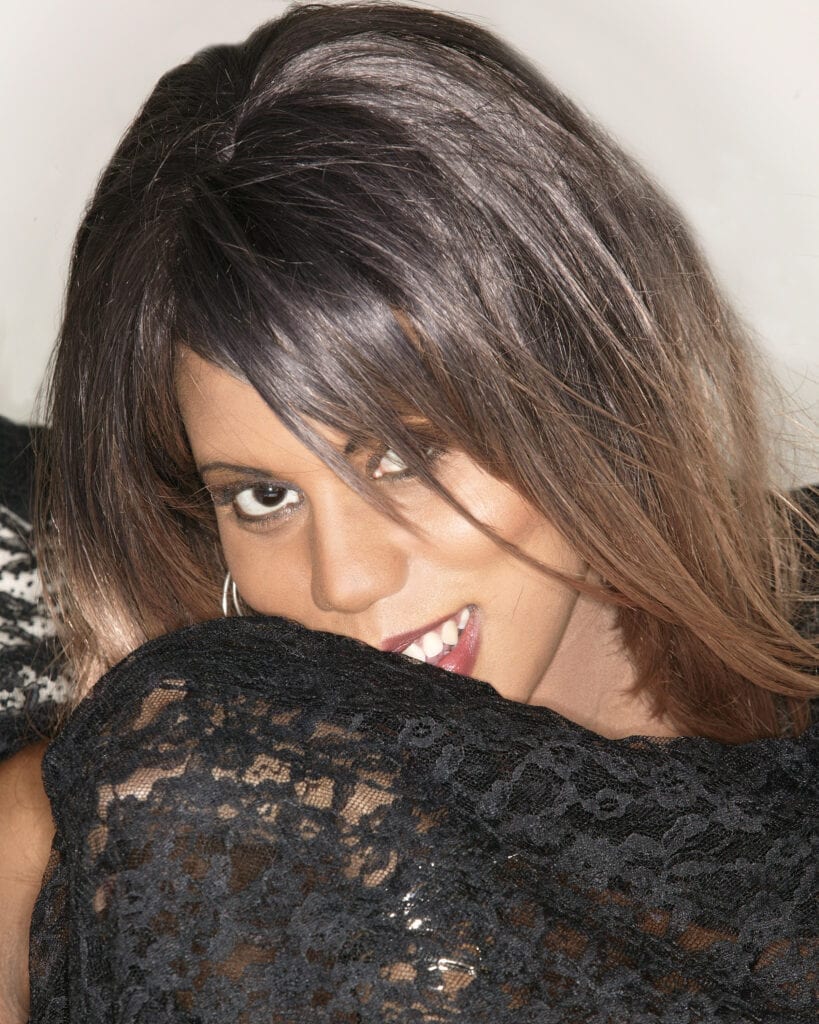
In 2016, I scored the documentary, Free CeCe, produced and directed by Jacqueline Gares and actress/director Laverne Cox of the series Orange Is The New Black. The documentary details the struggles of CeCe McDonald, an African-American transwoman who was wrongfully incarcerated for murder for defending herself against a hate driven attack on her life outside of a bar in Minneapolis. In 2015 Mixmag named me as one of “20 Women Who Shaped the History of Dance Music. I was also the first transgender woman to have a music video on MTV in the US. I was the first trans person to play the Winter Music Conference in Miami and South by Southwest in Austin, TX. My music has been reviewed by the likes of Billboard, Spin, Village Voice, Rolling Stone, Urb, Mixer, Mixmag, Raygun, Vibe, and Trip (Español), as well as Knowledge – the U.K. Drum and Bass magazine. In 1999 I was sponsored by M.A.C Cosmetics, Diesel, Sketchers and Vendetta; appearing in magazine ads for some of them. All of this resulted in me being named to Out Magazine’s Out 100 for 1999.
I’ve been featured in a New York Times best selling book, as well as additional books alongside Laverne Cox, Bailey Jay, and Nomi Ruiz.
Who are some of your favorite artists?
Beyonce, Rihanna, Ms. Dynamite, Miss Trouble, Mizeyesis, B-Complex, MC Chikaboo, Honey Dijon, Mandidextrious, Cece Peniston, DJ Minx, Ultra Nate, DJ Rap, Euphonique, The Weeknd, Inja, Degs, Roni Size, DJ Krust, Noisia, Ill Gates, Evol Intent, Celldweller, Jay Eskar, Blue Stahli, The Prototypes and there’s a lot more I could list. I love all kinds of music beyond electronic and pop.
What is your favorite festival/event you’ve ever been to?
Winter Music Conference 1998 in Miami. Besides playing at an associated event, I felt that the foundations were laid there for the rise of electronic dance music genres in the U.S. for the very first time.
Do you have any specific instances, either positive or negative, that regard your race/sexual identity in the EDM scene? Share these with us.
This could fill a book, but the most prominent in my life was the hate crime against me which left me with nerve damage in my face. Following performing, while on tour supporting my 3rd album “The Cities Collection”, I was attacked while walking with the promoter of the club I played at in Kent, Ohio in February 2000. My life was never the same following their attempt on my life which began my slow decline into poverty. The men who attacked me used racial slurs and misgendered me both during the attack and subsequently. In fact Matthew Gostlin, the main protagonist, as recently as this year joked on Facebook about it. Neither he or his accomplices were arrested or spent as much as a night in jail. I was also sexually assaulted in the back of a car by Carlos Slinger aka DJ Soulslinger, while under contract to his label, Liquid Sky/Jungle Sky, which he owned. I couldn’t say anything due to being under contract and feeling like no one would believe me or care.
I was often the subject of jokes online on different Drum & Bass and electronic music forums so I didn’t feel that I would be supported at all if I came forward. Only now, 20 years later, have I spoken about it. But before all of that going back to the beginning of my career, I routinely faced transphobia in the local rave scene in Pittsburgh. I learned in 2014 that I was undermined by a prominent local Drum & Bass DJ who rose to national attention who back in the 90s would tell promoters not to book me because I was trans. Even before I was even able to play events, I was told by a local promoter that I had to present as male.
More recently, in 2011 one of my fans posted a video on my Facebook page of a Bassnectar song called “Here We Go” whose title was taken from a phrase my MC, MC Sphinx (Hossam El Saie) shouted over top of my track “5 A.M. Rinse” on my first album. The entire build and hook of the song was stolen without Lorin ever contacting me. What followed were years of frustration, trying to contact him, while living in poverty. When I finally could afford an attorney his response was that he had been trying to find me (despite me having a Facebook page) and he ultimately breached the contract he signed which would have given me a 50/50 split and co-writer credit on his hit had he honored the contract.
As to positives, I initially got into the rave scene and electronic music in general as an escape and a place where I could dance and be myself without judgement. I found that in many ways. Unfortunately it turned out society’s problems were never too far away but were reflected in the scene, and in my case intensified as I moved from the dancefloor to the stage. For all the great love and joy I found within the community, I’ve taken a lot of hard knocks because of who I am.
What do you think about the racial/sexual identity representation in the EDM community?
From an artist and performer’s perspective, at least when talking about headliners, it doesn’t seem very diverse. Like most major industries in the US whose leadership consists primarily of cisgender white men, EDM has a whole circle of established industry authorities, tastemakers and production crews who dominate most positions of power, and occupy them seemingly forever. This, despite there being a large variety of people who are actually creating amazing music and capable of putting on enthralling performances if given the chance. This is a problem for multiple reasons. One being that it only empowers people that already have more advantages, and the power imbalance leads to abuses, as we’ve most recently seen in the case of Bassnectar and other prominent EDM artists. Another problem with this mentality is that the industry limits its own audience because many people don’t see themselves represented on stage and thus feel left out. This exacerbates the diversity issues. It is a cycle that has for decades affected the make-up of both artists and attendees. Finally, often the history of the origins of the music itself becomes erased from common knowledge. House, Garage, Techno, Drum & Bass and Dubstep all originated in the black community yet those who have profited from it the most and controlled the narrative have not been from the black community. I would encourage the industry to cast a wider net and hold one another accountable. It’s 2020 and I would have thought that over 20 years things would have significantly improved but they haven’t. It’s time for the industry to take a long hard look at itself and start the process of improving so that in 2040 some artist isn’t saying the same damn thing.
Are there any DJs or producers you feel you resonate with or represent you well?
I think the early 1.8.7 stuff resonated with me when I was younger but clearly the Jordana stuff is much better engineered. I also think Lady J was pretty good at remixing stuff into 2-Step Garage, I’ve been told her set with Lady Sovereign on Flex FM was pure fire. 😉
Seriously though, there are a lot of DJs and producers whose sounds I absolutely adore and I’ve mentioned some of them earlier but as far as them representing me, there’s only one me. There are so many people innovating and exploring with electronic music across all sub genres. It’s exciting to hear what the future will hold.
Do you generally feel welcomed in the EDM scene?
This question raises a question I have: Do you generally feel that Drum & Bass is welcome in the EDM scene?
Do you feel well represented in the EDM scene?
For the most part, no.
Bass heads often use the phrase PLUR when talking about the community. Do you think your experiences have represented PLUR?
PLUR = Peace Love Unity and Respect – Early in my life when all of this was new, and I was just going to events and dancing there was a great sense of community and PLUR was reflected in the actions of many people, promoters, DJs and event goers. People looked out for each other but that didn’t last long. As the scene became more commercial, PLUR became more of a catchphrase than a philosophy everyone adhered to. I remember distinctly within Drum & Bass events as they were split off from the larger rave scene, the phrase being mocked, like “F your P.L.U.R” which saddened me. I had to choose between the music I loved to make and a scene which mocked the reasons I even got into electronic music in the first place.
Do you see the EDM scene ever becoming more inclusive?
I would hope so, but hope is not enough; we cannot just will inclusion and diversity into existence. Everybody has an active part in affecting change from artists and labels to people who book events, to media, to you the reader and festival goer. There have been some encouraging signs of change. For instance, Mixmag’s #1 rated DJ’s of 2019, Eris Drew and Octo Octa have not only been awesome and supportive in my life and artistic evolution lately, I am inspired by the intention behind their label, T4T LUV NRG which is to create safer and inclusive spaces. While not a part of the EDM scene per say, there is no reason why the EDM scene can not learn from other people making intentional changes in the larger music community. I look forward to working with them in the future,
![]()
Do you think the demographics of the EDM scene will ever change?
Again, I would hope that would be the case but it won’t happen without everyone within the EDM music industry itself actively and consistently works towards more inclusion (more on that later).
Inclusion and a music scene’s demographics are intricately linked. If the EDM scene becomes more inclusive the demographics of it in terms of audience would likely change. Quite often people need to see themselves represented on stage for a scene or music genre to be relevant to them, or to see themselves perhaps becoming the next star DJ/Producer.
Is there anything else you would like to tell us?
According to multiple sources the average life expectancy for black transgender women is 35 years old. I narrowly escaped becoming part of that statistic. If it wasn’t for an interacial couple that intervened to save my life 20 years ago, I wouldn’t be here to tell my story or share my experiences in the electronic music world.
Black Lives Matter is not just a hashtag nor is it just about black people killed by police. BLM is a human rights revolution to show that black people’s lives are just as valuable as anyone else’s. Quite often that is expressed through anger and rage due to the frustration we have faced getting that point across.
We are more than just four centuries of pent up anger. We are full human beings with a variety of experiences, emotions and stories to share. These interviews frequently highlight the struggle I’ve been through, and I’ve had to relive and become re-traumatized in retelling aspects of my life which were extremely painful. So I fear I come off again as the caricature of the “angry black trans woman” but I am so much more than that. I hope to share more than anger and pain in future interviews and through my music.
As music lovers, festival goers and members of the global dance music community, you have a lot of power. Much of that power is financial and by all means you should strongly consider using that as a tool for change. In order to do so, just as people have spoken up in support of black lives in the streets, you must speak up in support of greater diversity at events you attend and at music labels which you support.
Your power is not just limited to your voice or what you spend. You can also educate yourself and others as to the systemic issues within EDM and beyond. If you or someone you know have a DIY label, learn how to be more inclusive by becoming a good ally. And of course you can directly support BIPOC and LGBTQ+ artists within EDM by giving them a like, play, follow and upvote. That literally costs you nothing.
Finally, this music’s history has been whitewashed. It is imperative that the deep, diverse history of this music, whether it is the origins of techno in 1980’s black Detroit, intersectionality of House music’s black, gay and trans foundation. One might also examine the racist origins of the term “Jungle Music”; used to describe the bass heavy, high octane, breakbeat fusion of 1990s Afro-Caribbean London, with burgeoning digital music technology. Which when profitable and slightly whiter, became labelled as “Drum & Bass”, a term which was borrowed from the Reggae scene. Much has already been written about these subjects and these histories need to be told, cherished, preserved and passed on to the next generation. We owe it to them and each other to empower one another in this moment right now when so many people are questioning dominant historical narratives. Afterall, what is the point of celebrating together if we can not uplift all of the voices and welcome new ones into the crowd?
Jordana’s Music
We have listened to some of Jordana’s tracks and want to highlight one in particular. Fight For Our Lives was released in June and highlights some of the injustice that not only Jordana has experienced, but the entire black community has experienced. We wrote about that track HERE. We plan to highlight more of Jordana’s music throughout the next few weeks, so please be on the lookout!
Jordana’s links:
soundcloud.com/jordanaofficial
Lady-J – https://soundcloud.com/lady-j-
I looked into some collectives that are working for equality on the dancefloor. Here is a list to get started:
-Discwoman (NY)
-Grimalkin Records (Virginia):
https://daily.bandcamp.com/label-profile/grimalkin-records-label-profile
-No Shade (Berlin):
https://soundcloud.com/noshadeeu
-Gays Hate Techno:
https://www.gayshatetechno.com
-Batekoo (Brazil):
https://www.instagram.com/batekoo
-Oramics (Poland):
-Room for Resistance (Berlin):
-Trans Trenderz
https://www.them.us/
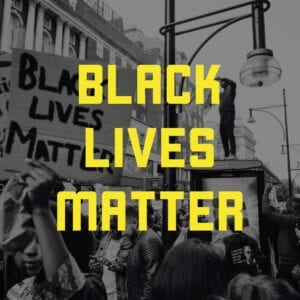
We want to thank Jordana for her time and her interview. We plan to be posting more information on upcoming threads. If you have a story you would like to share, please reach out to us on social media or email us at Editor@TheFestivalVoice.com
Check out our other interviews.
Don’t forget to follow The Festival Voice for all of your electronic music and festival news!
Instagram: @TheFestivalVoice
Facebook: @TheFestivalVoice
Twitter: @thefestvoice
Snapchat: @thefestvoice
